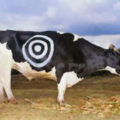
A low caloric diet changes the chemistry in the brain, enhancing both cognitive performance and memory, a discovery which scientists hope will yield new drugs to arrest the cognitive decline associated with aging. The research appears in the Proceedings of the National Academy of Sciences and was carried out by scientists from the Catholic University of Sacred Heart, Rome.
Caloric restriction (in this case defined as eating only 70 percent of the food normally consumed) is already known as a way to increase longevity. It has also been observed in animal models that caloric restriction appears to slow the effects of aging on the brain. However, the precise molecular mechanism behind the positive effects of this hypocaloric diet on the brain remained unknown until now.
Researcher Giovambattista Pani said the brain boost is triggered by a molecule known as CREB1. He found that CREB1 activates genes linked to both longevity and the optimal functioning of the brain.
Pani’s team discovered that CREB1 mediates the beneficial effects of diet on the brain by turning on another group of molecules linked to longevity – the sirtuins. This finding is consistent with the fact that CREB1 is known to regulate important brain functions – memory, learning and anxiety control – and its activity is reduced by aging.
CREB1, explains Pani, can be dramatically increased by simply reducing caloric intake, and the researchers have shown that CREB1 is essential for caloric restriction to work. “If mice lack CREB1 the benefits of caloric restriction on the brain disappear. So the animals without CREB1 show the same brain disabilities typical of overfed or old animals.”
Related:
Discuss this article in our forum
Forgetful? Blame your house
Surreal experiences boost brain power
A chemical to make brain cells grow
Alzheimer’s risk gene begins disrupting brain 50 years before disease hits












Comments are closed.